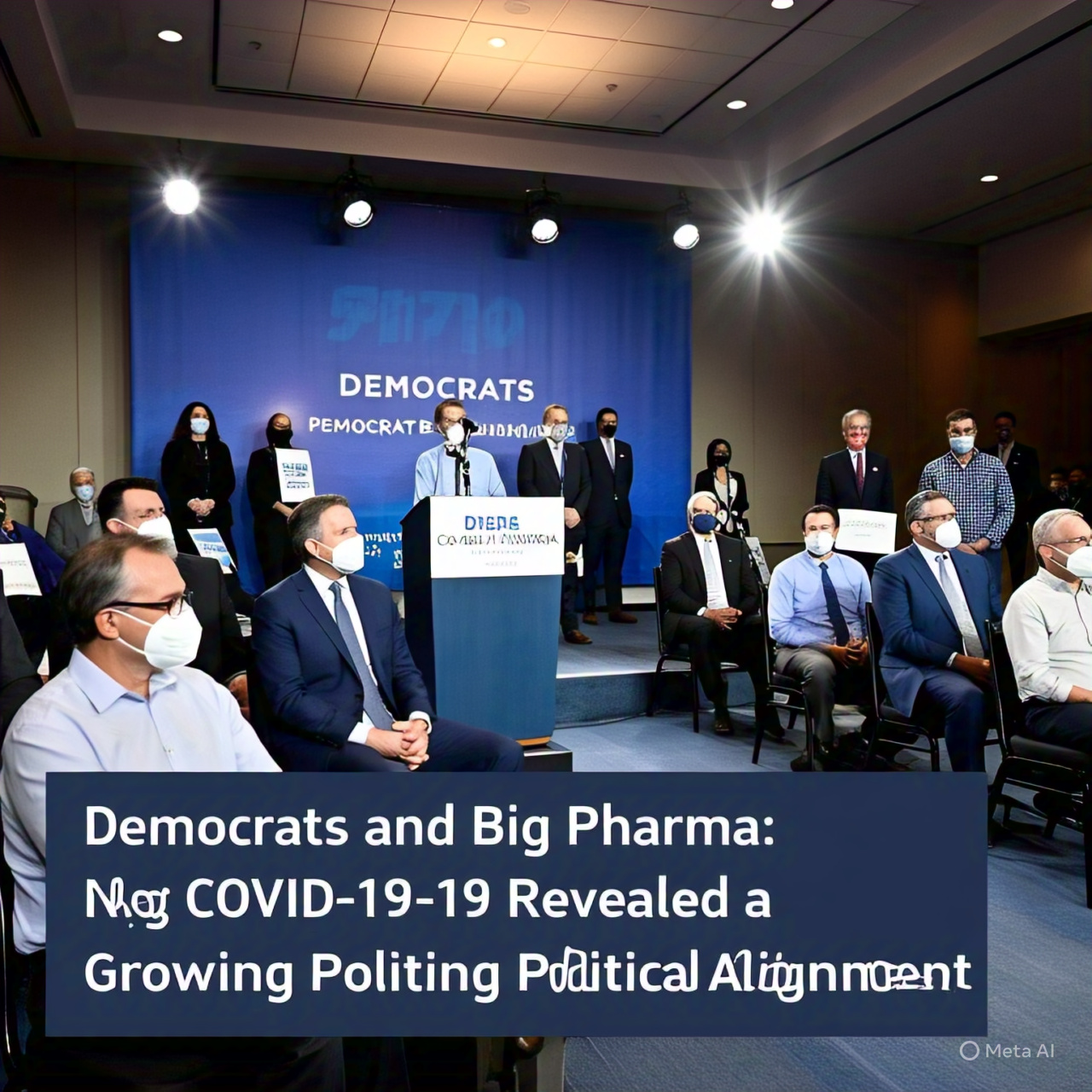Headline:
“Democrats and Big Pharma: COVID-19 Sparks Scrutiny of Political Alignment”
Byline:
By [khadija khan] | May 12, 2025
Body:
As the dust settles on the global pandemic that redefined modern public health, political analysts and watchdogs are taking a hard look at how COVID-19 reshaped the relationship between the Democratic Party and the pharmaceutical industry. Critics from both the left and right argue that the pandemic revealed a growing alignment between Democratic leadership and Big Pharma—a relationship some say undermined affordability, accountability, and public trust.
Pandemic Policies Under the Microscope
During the height of the COVID-19 crisis, the Democratic Party pushed for vaccine rollouts, emergency authorizations, and billions in federal funding for pharmaceutical companies. While these actions were praised for speeding up vaccine availability and saving lives, they also raised questions about corporate influence and the lack of price controls or transparency in the deals.
The Biden administration, for example, poured massive public investment into companies like Pfizer and Moderna under initiatives like Operation Warp Speed (continued from the Trump administration), but allowed those same companies to maintain exclusive patents and set prices with minimal oversight. According to a 2022 New York Times report, Pfizer made over $80 billion in COVID-related revenue, while the government made no attempt to cap costs or enforce licensing for generics.
(Source: NYT, “Pfizer’s Pandemic Profits”, 2022)
From Advocates to Allies?
Historically, Democrats positioned themselves as the party challenging pharmaceutical price-gouging—supporting Medicare negotiation powers and generic competition. But during the pandemic, many progressives noted a shift in tone. Critics argue that in the name of public health, the party supported broad legal protections for pharmaceutical firms and downplayed concerns over vaccine mandates, monopolies, and profit motives.
“They used to fight Big Pharma,” said Dr. Angela Rayburn, a healthcare policy expert at the Center for Public Integrity. “Now, they often sound like defenders—saying it’s about public safety while quietly allowing billions in unchecked profit.”
Political Contributions Raise Eyebrows
Campaign finance records from OpenSecrets.org show a significant increase in pharmaceutical industry donations to Democratic candidates and committees between 2020 and 2022. In fact, for the first time in over a decade, Democrats outpaced Republicans in total pharma-linked contributions.
(Source: OpenSecrets.org, “Pharmaceutical/Health Products: Top Recipients 2022”)
While donations alone don’t confirm policy bias, watchdogs say the pattern is concerning.
“When the industry writes checks to both sides, you know they’re hedging their bets,” said political analyst James Monroe. “But when one party becomes their preferred investment, you have to ask what’s being promised in return.”
Executive Orders: Too Little, Too Late?
In response to rising public frustration, the Biden administration eventually signed executive orders aimed at lowering insulin prices and capping drug costs for Medicare recipients. But some critics call these moves “symbolic gestures” that arrived after the pandemic windfall had already reshaped the industry.
“The real question,” says Monroe, “is why the reforms came after the damage was done. Why didn’t Democrats fight harder when it mattered most?”
Conclusion:
While Democrats have long branded themselves as champions of healthcare reform, the COVID-19 pandemic complicated that image. As pharmaceutical profits soared and regulatory scrutiny softened, a new narrative took root—one that suggests the party once known for opposing Big Pharma may have become one of its most valuable allies.

